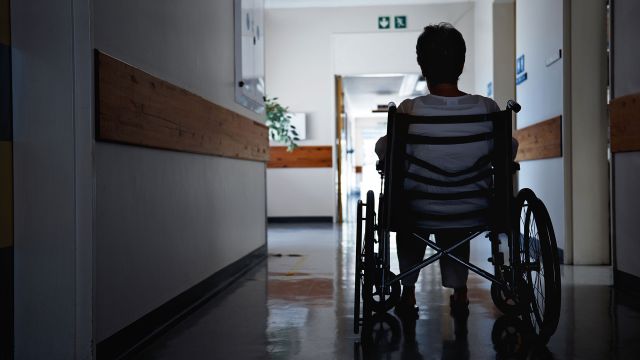Chronic obstructive pulmonary disease (COPD), a progressive lung disorder that makes breathing difficult, affects more than 16 million Americans and is the third leading cause of death in the United States. In addition to the physical toll COPD takes on the body, research shows that the disease also reduces quality of life and can negatively impact the mental health of patients and their families. Research also shows that COPD patients with psychological conditions have higher rates of hospital readmission.
A study from the University of Texas Medical Branch at Galveston tracked a decade's worth of hospital admission rates for Medicare recipients with COPD. The data showed that COPD patients with one or more psychological risk factors (such as depression or anxiety) were 5 to 14 percent more likely than other COPD patients to be readmitted to a hospital within 30 days of discharge. The rate of readmission was even higher in patients who had psychological conditions such as alcohol problems or psychosis, or who had at least two simultaneous conditions.
The study findings make sense, according to Philip Diaz, MD, professor of medicine and director of the COPD programs at The Ohio State University College of Medicine in Columbus.
“It’s consistent with some other data that would support that concept,” he says, noting that people with any kind of disabling, chronic condition are prone to depression and anxiety. With COPD, this is probably due at least in part to the fear generated by breathing difficulties.
“[With COPD] your lung mechanics are such that you have difficulty getting air out,” says Diaz, explaining that people with COPD often have trouble exhaling. This may cause them to hyperventilate out of panic and end up calling an ambulance.
“What starts as a psychological issue may make a physiological problem much worse.” Diaz added that people who are depressed or anxious may be less likely to adhere to treatment plans and medication schedules, which can also lead to symptoms becoming worse and result in the need for hospital readmission.
In Diaz’s practice, he likes to enroll COPD patients in pulmonary rehabilitation, also called pulmonary rehab or PR. Pulmonary rehabilitation is a program that works to improve a person’s ability to breathe through a number of different approaches. While programs are tailored to the needs of a patient, it can include education about the respiratory system and how it is impacted by disease, as well as training in relaxation techniques, breathing strategies, nutrition and exercise. It can also include psychological counseling and meetings with support groups. Pulmonary rehabilitation is used alongside medical treatments for COPD.





